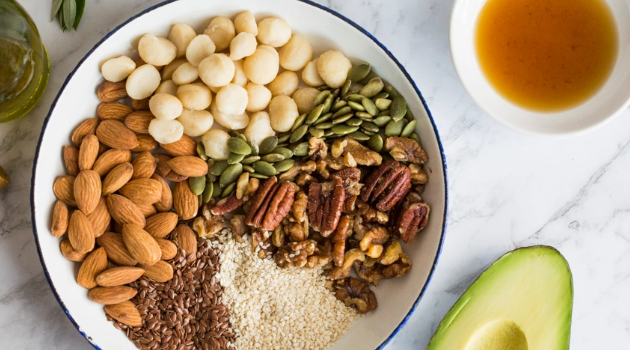When it comes to maintaining heart health, not all fats are the same. Some types of fats can actually improve your cardiovascular health, while others can negatively affect your cholesterol levels and increase the risk of heart disease. By understanding the different types of fats and how to incorporate healthy options into your diet, you can better protect your heart.
The Unhealthy Fats: What to Limit
Certain fats are best limited to maintain healthy cholesterol levels. These fats—especially saturated and trans fats—are known to increase bad cholesterol (LDL), leading to heart disease and other cardiovascular problems.
Saturated Fats
Saturated fats are typically solid at room temperature and are found in animal-based products like meat and dairy. Though recent research suggests that saturated fat may not directly cause heart disease in healthy individuals when consumed in moderation, excessive intake can still raise LDL cholesterol levels. Foods high in saturated fats include fatty cuts of meat, full-fat dairy products, and foods prepared with coconut or palm oils. To keep your cholesterol in check, it’s important to limit these fats.
Trans Fats
Trans fats are artificially created through the process of hydrogenation, which solidifies liquid oils. These fats are particularly harmful because they increase LDL cholesterol while decreasing HDL (good) cholesterol. Trans fats are linked to higher inflammation and a greater risk of heart disease and stroke. Thankfully, many products have reduced or eliminated trans fats, but it’s still important to check ingredient labels for “partially hydrogenated oils”—even small amounts can be harmful.
The Healthy Fats: What to Include
On the other hand, certain fats can help lower your LDL cholesterol and promote heart health. These include monounsaturated and polyunsaturated fats, which can be found in plant-based oils and fatty fish.
Monounsaturated Fats
Monounsaturated fats are considered heart-healthy because they help reduce LDL cholesterol levels while maintaining HDL cholesterol. Foods rich in monounsaturated fats include olive oil, canola oil, peanut oil, and avocados. Incorporating more of these fats into your diet can help protect your heart and improve cholesterol balance.
Polyunsaturated Fats
Polyunsaturated fats include omega-3 and omega-6 fatty acids, both of which are essential for good health. Omega-3s, in particular, are beneficial for heart health as they help lower cholesterol and reduce inflammation. Fatty fish like salmon, mackerel, and sardines are excellent sources of omega-3s. Plant-based options such as walnuts, chia seeds, and flaxseeds also provide omega-3s, while oils like soybean, corn, and sunflower oil are rich in omega-6 fatty acids.
Incorporating Healthy Fats into Your Diet
Now that you know the types of fats to prioritize, here are some simple ways to adjust your diet for better heart health:
- Cook with olive, canola, or peanut oil instead of butter, lard, or coconut oil.
- Swap chips and crackers for a small handful of nuts.
- Spread avocado or nut butter on toast instead of cream cheese or butter.
- Choose grilled salmon over fatty meats like burgers or sausages.
- Replace whole milk with unsweetened almond milk.
- Use mashed avocado as a sandwich spread instead of cheese.
- Top salads with olive oil-based dressings.
In addition to focusing on healthy fats, it’s also essential to watch out for high sodium, added sugars, and refined carbohydrates in your diet, as these can negatively affect heart health.
Monitor Your Heart Health with Cholesterol Screenings
In addition to making these dietary changes, it’s important to get regular cholesterol screenings to track your heart disease risk. The American Heart Association recommends that all adults over the age of 20 have their cholesterol tested at least once every five years. If you have risk factors such as obesity, high blood pressure, or a family history of heart disease, your doctor may recommend more frequent testing.
A cholesterol screening provides important numbers:
- Total cholesterol level
- LDL (bad) cholesterol level
- HDL (good) cholesterol level
- Triglyceride level
By monitoring these numbers and making adjustments to your lifestyle as needed, you can work with your healthcare provider to maintain healthy cholesterol levels and reduce your risk of heart disease.
Making small changes to your diet by focusing on healthier fats can significantly improve your heart health over time.











